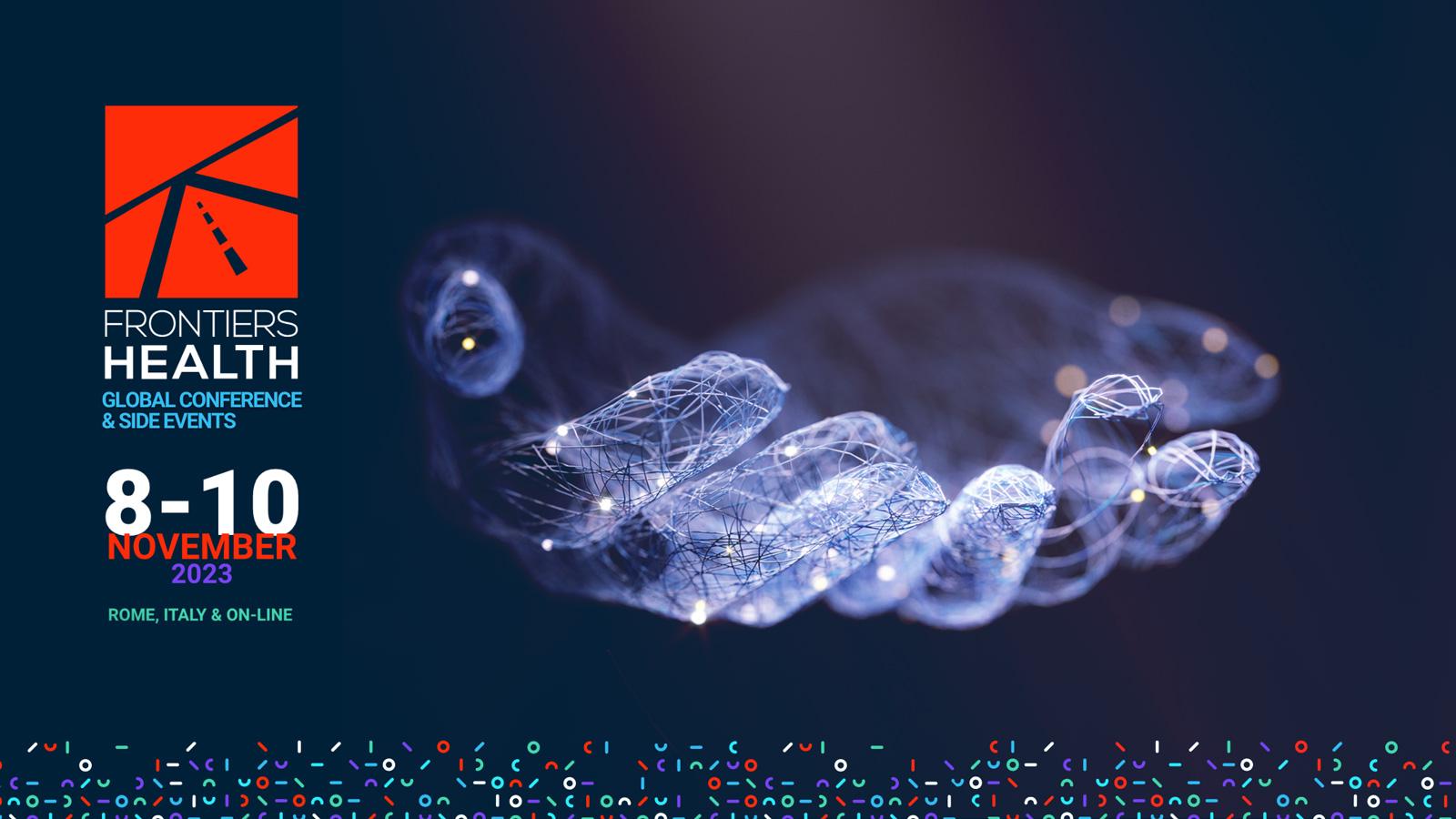FH23: AI and humanity, a relationship for the future

On Wednesday 8th November, experts from around the world arrived in the heart of Rome, Italy, for a three-day meeting of the minds as Frontiers Health returns for 2023. As part of the opening day’s agenda, the thematic session ‘AI impact on healthcare: Large language models and beyond’, delved into the subject of forging new frontiers of computer-human interactions in healthcare.
To find out more, pharmaphorum sat down (virtually) with Alison Darcy, founder and president of Woebot Health, who marked her first appearance at Frontiers Health with the keynote address “AI and Humanity: A relationship for the future”. Drawing on her years of experience working in the AI space, she shed light on the implications of relational technology in healthcare, how ‘playful’ AI can help to break down barriers in mental health, and what excites her about exploring the future of this transformative sector.
The role of AI in mental health
Since its inception in 2017, Woebot Health has been at the forefront of working to realise the potential of AI as a tool to scale mental health services to those in need. Unfortunately, for many, the existing structure of mental health care has limitations – with fees, scheduling restrictions, and the episodic nature of in-person appointments making it difficult for some patients to access the help they need.
That’s where automated conversational chatbots, like Woebot, come into the equation. As Darcy explains it, although AI is still a relatively incipient subject in healthcare, there is enormous potential in using relational technologies to help support patients alongside their conventional care pathways. Understanding and acting upon this potential is the exciting part.
“I think we’re in this new era of interfacing with technology in a different way – one that has the potential to be seamless and more accessible from an emotional and intellectual standpoint than other tech that has come before,” she says. “It’s just a conversation, which, of course, is just so accessible to human beings.”
In a sensitive area, such as mental health, where interactions can be highly impactful, relational AI comes into its own. While Darcy is keen to emphasise that the technology is purely a tool to aid clinicians and patients throughout their treatment journey, study results released earlier this year demonstrated that digital mental health intervention is non-inferior in reducing depressive symptoms among teens, compared to clinician-led telehealth cognitive behavioural therapy (CBT) skills.
“We evolved and referred to Woebot as a relational agent because we built it to replicate some of those characteristics of human-to-human relationships and, most importantly, trust, which, of course, is the foundation for any health conversation,” she explains.
For Darcy, digital mental health interventions have the option to be creative when it comes to facilitating and fostering trust – creating a character that patients can become familiar with. Similar to that of a patient-therapist dynamic, such a character offers a comfortable and safe space for individuals to engage.
“It’s playful,” explains Darcy. “If they can lean into this idea that it’s not serious, there are no consequences for making the wrong decision. They are psychologically freed up to play around. That’s exactly what you’re asking people to do in therapy.”
“When you have this AI character that’s already fictionalised, it facilitates that way of thinking – which we’ve seen with adolescent populations and the fact that they’re able to engage in more abstract ways of thinking through video game media in certain video games,” she notes. “It’s not a human-to-human relationship, but it is a relationship.”
AI and humanity: Debunking misconceptions
Of course, when discussing any potential future for AI and humanity, it is difficult to escape the scepticism surrounding the rapid emergence of the technology in healthcare.
“[AI] is just one of those topics that can sound so dystopian,” says Darcy. “But, in my experience, when we really dig in with clinicians and decision-makers in health systems, and go into the detail and the principled approach that we’ve taken, it’s a lot less scary. It really is just an interface. It is not a sentient entity that is going to come and crush us all like Skynet.”
So, how can the industry address concerns surrounding the use of digital mental health interventions? For Darcy, a good starting point is to encourage open and honest conversations. Moreover, it is important to create a solid regulatory framework to ensure that any new products on the market are fit-for-purpose.
“There’s only one path through healthcare, and it’s through lots of responsible design, study, pilots, gathering the data, ensuring that you don’t have unintended consequences,” she says. “There are no shortcuts when you’re talking about people’s health and the potential for negative impacts. It’s slow, it’s expensive, and what I worry about is that, in the meantime, the people who make missteps and try to skip those steps end up undermining people’s confidence in the ability of this tech in general to deliver some real benefit.”
Excitement for the future
At Frontiers Health 2023, Darcy is keen to explore conversations surrounding digital health in greater depth. The unprecedented potential to deliver human-centred technology on a large scale is an exciting prospect, she says, and sharing the stage with like-minded and innovative individuals in the space promises to deliver thought-provoking conversations.
“This is such an incredible time because we have seen this huge leap forwards in technology and in the kind of tech that we know, if it was delivered well, can have real benefits,” she says. “Now, when you have a conversation that’s backed up with very good data and where there’s great accuracy and just the inevitable future, for me, it is definitely a huge patient benefit.”
“When you look at the list of speakers, I’m just thrilled to be among them and to be able to have some conversations over coffee,” she concludes.
Looking ahead to Frontiers Health
Frontiers Health 2023 is a premier global health innovation event strongly focused on digital therapeutics, breakthrough technologies, healthcare transformation, investments, and ecosystem development. Over the course of three days, between 8th and 10th November, it is bringing together thought leaders, policymakers, industry players, and innovative companies to discuss in depth – beyond surface-level words – the ongoing challenges, strategic trends, and scalable solutions impacting healthcare today.
Whether you’re interested in attending the whole FH23 conference or just a part, it’s not too late to register












